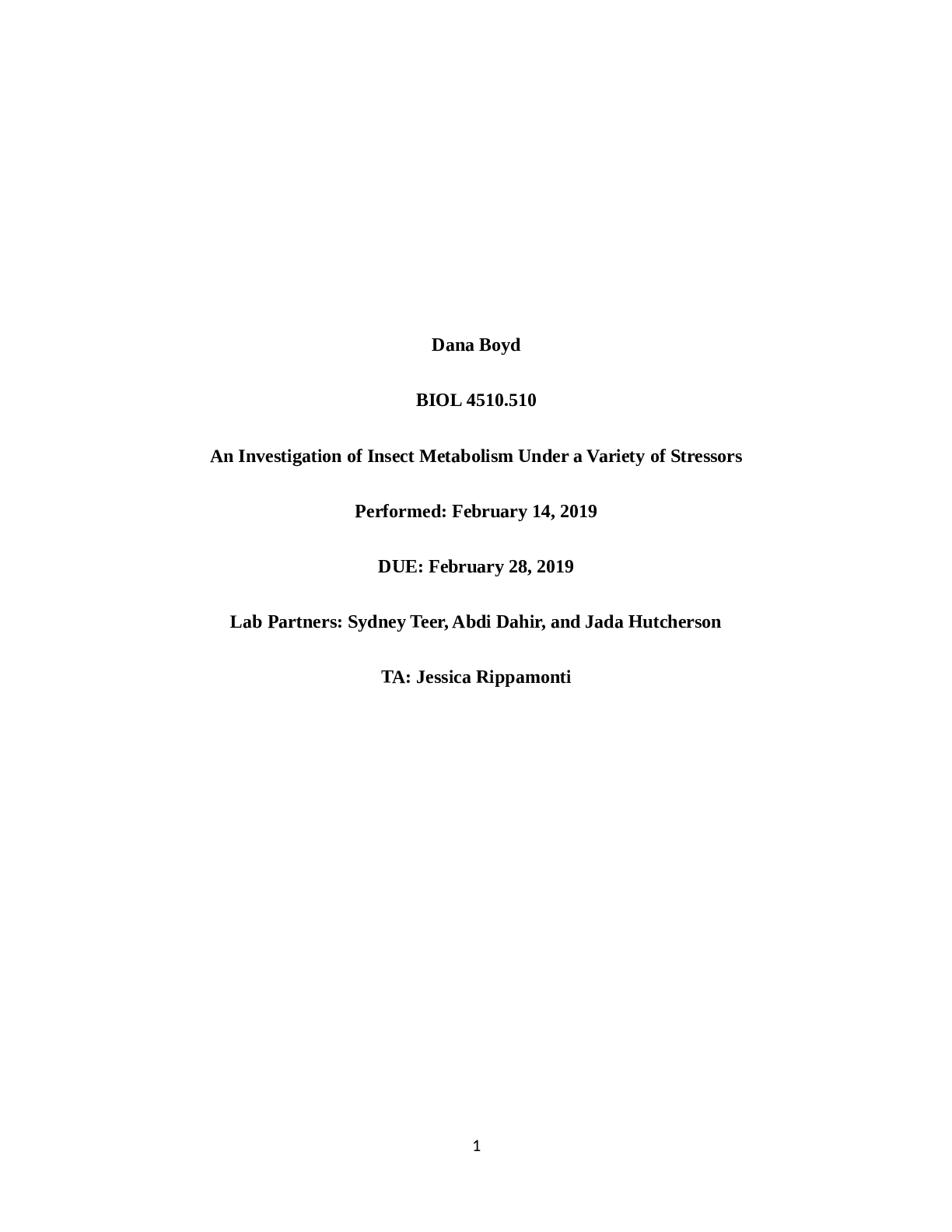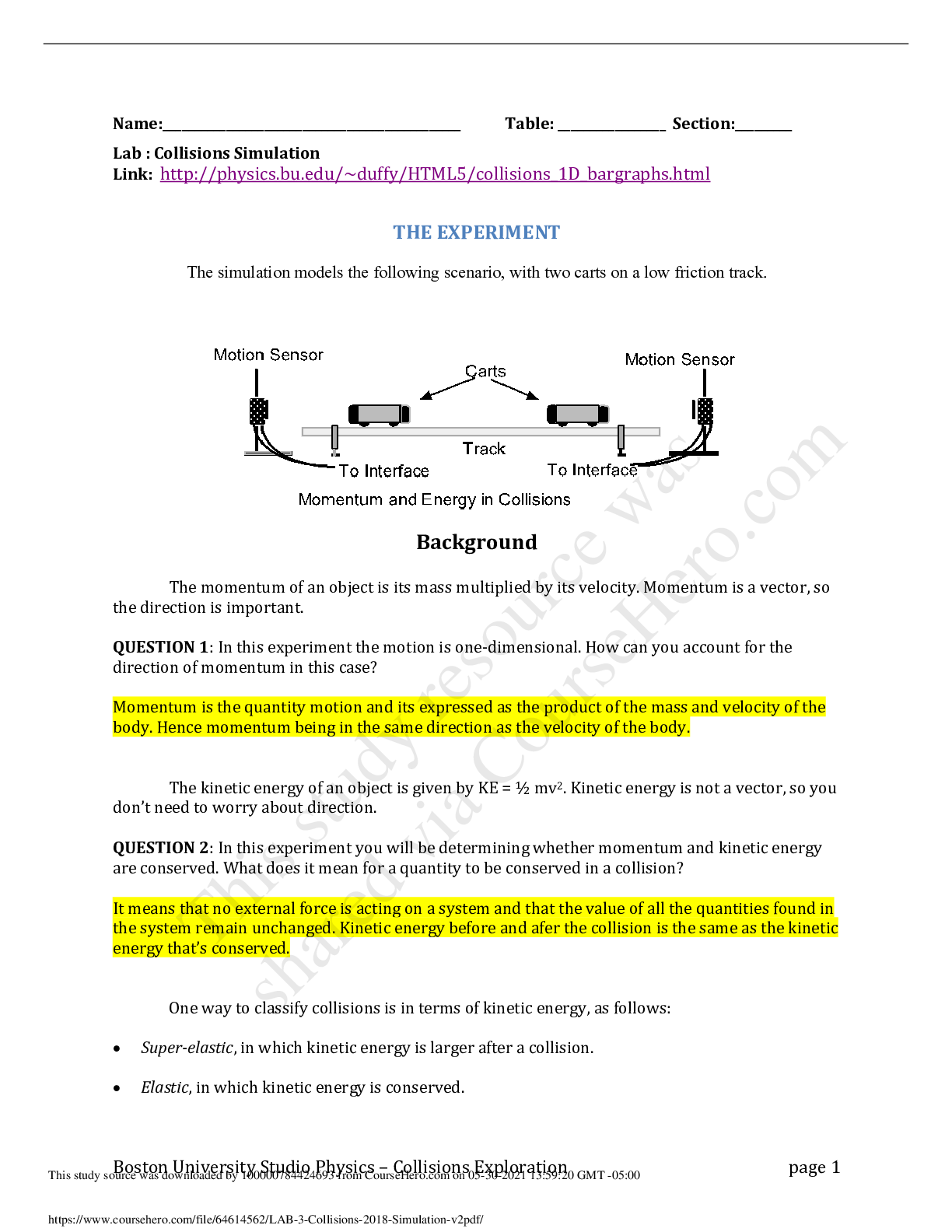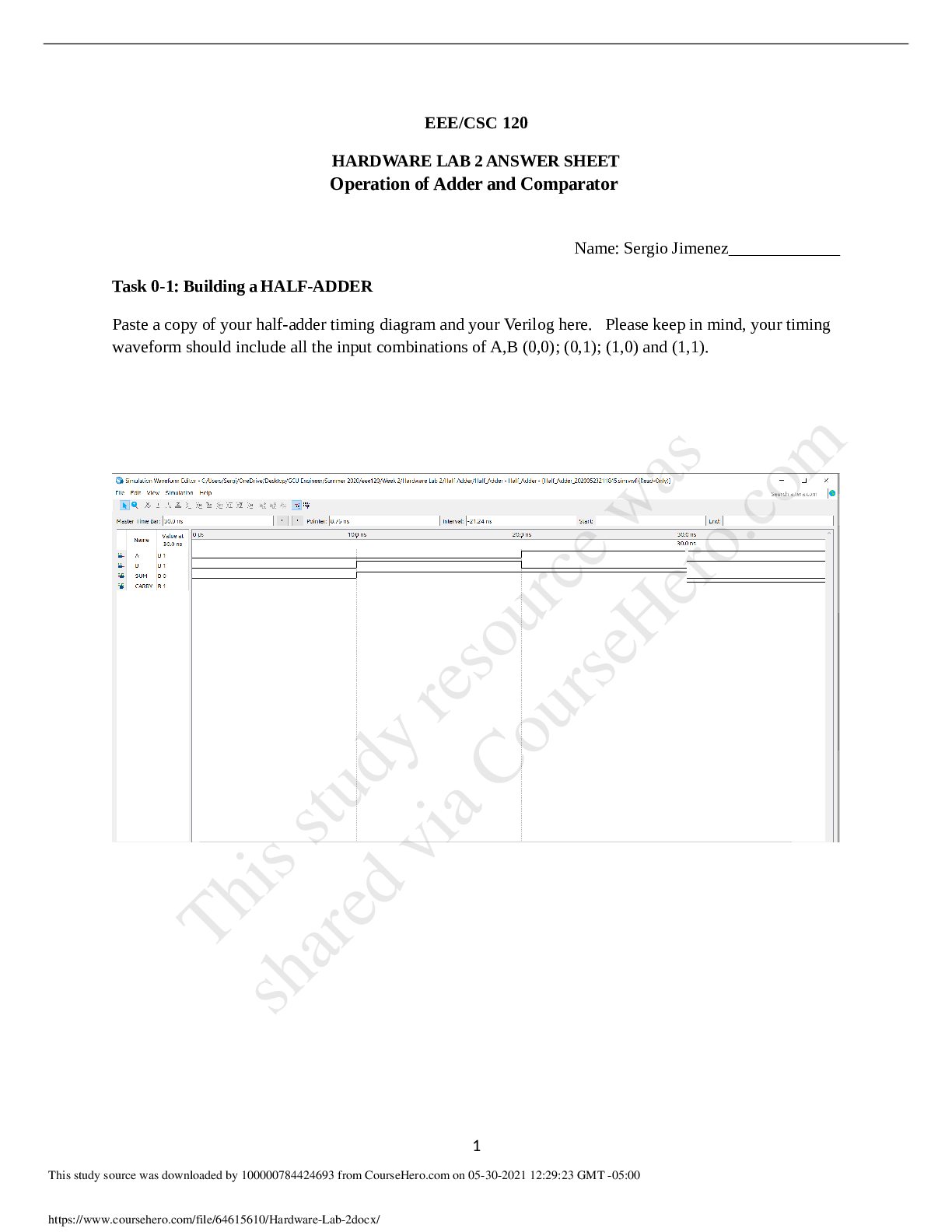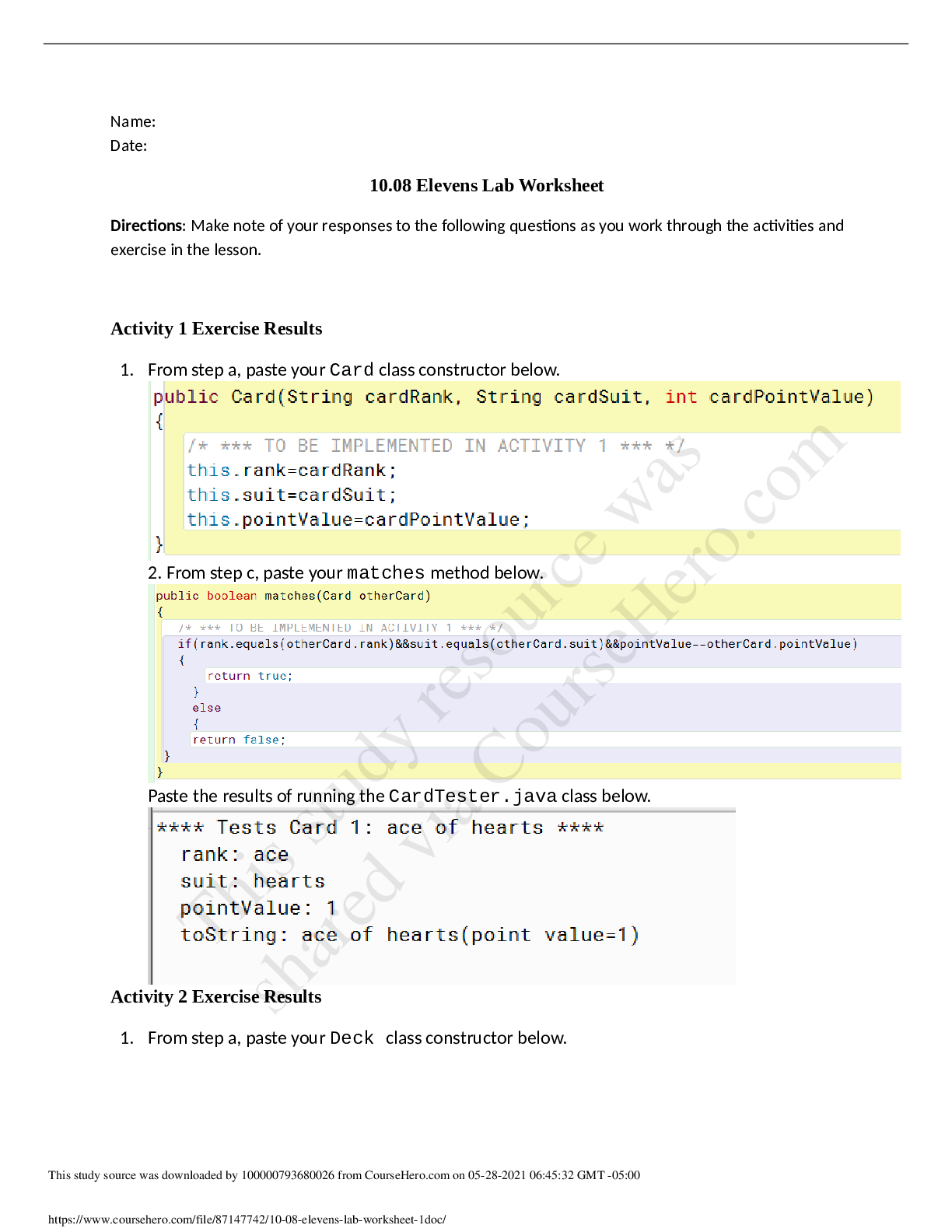Biology > Lab Report > BIOL 3510Biol 3520 Lab report 1>University of North Texas, Dallas (All)
BIOL 3510Biol 3520 Lab report 1>University of North Texas, Dallas
Document Content and Description Below
Introduction The University of North Texas has sent four of their brightest Cell Biology students to Scotland to do research with the University of Glasgow on an unknown tissue sample they obtained... while retrieving equipment being used to witness the Lock-Ness Monster. The tissue sample is the only evidence that has been obtained while trying to determine the likelihood of this creature’s existence. With the use of breakthrough technology and highly skilled laboratory techniques, these students will develop a cladogram to show the cladistic relationship between several known species. Experimental Objective (purpose and hypothesis The purpose of running these samples through Proteome testing will help determine if this sample is a never before see organism and if it is genetically related to any of the other known tested organism samples. This hypothesis is solely based on the fact that this Loc-Ness Monster sample was taken from the water, the closest ancestor that we will be testing with be the water dwelling Catfish because all of the sightings have been on the water. Experimental Approach (methods of how The tissue sample obtained will be used to construct a cladogram of 5 tissues samples from 4 known origins by sorting protein molecular weights of the tissue proteins. By using SDS-PAGE (Sodium dodecyl sulfate – polyacrylamide gel electrophoresis) a form of electrophoresis that treats samples with SDS to denature proteins. SDS-PAGE separates according to their mobility, the samples can have similar charge to mass ratios results in fractionation by size. The importance of the sodium dodecyl sulfate (SDS) is that it binds to and coats the protein while keeping the protein in a denatured state linearly. This form allows proteins to migrate in the gel as if the protein has an equivalent negative charge, with mass of the protein that affects the migration rate through the gel.The Western Blot method as an analytical technique used to detect specific proteins in each sample of tissue homogenate or extract. The Western Blotting technique is widely used to identify specific proteins within a biological sample. It is based on two properties; molecular mass and antibody binding specificity. This Western Blot procedure is designed to identify Actin and Myosin Light Chain muscle proteins. The first part of the Western Blot employs the electrophoresis of protein to determine the molecular masses of the target proteins and differs from SDS-PAGE in that SDS-PAGE separates according to mobility (length, molecular weight, and protein order folding). The second part of Western Blot, the proteins are tra [Show More]
Last updated: 2 years ago
Preview 1 out of 12 pages

Buy this document to get the full access instantly
Instant Download Access after purchase
Buy NowInstant download
We Accept:

Reviews( 0 )
$7.00
Can't find what you want? Try our AI powered Search
Document information
Connected school, study & course
About the document
Uploaded On
Apr 14, 2021
Number of pages
12
Written in
Additional information
This document has been written for:
Uploaded
Apr 14, 2021
Downloads
0
Views
65

.png)












